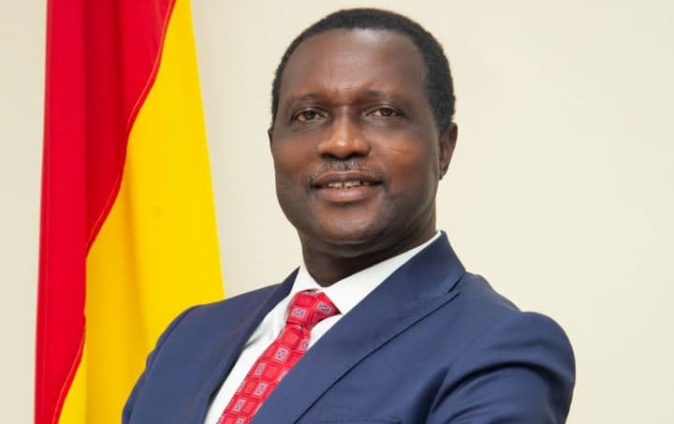The upcoming general elections in Ghana have stirred up debates and discussions among citizens and politicians alike, with each party striving to select the perfect candidate as their running mate.
For John Mahama, former President of Ghana and presidential candidate of the National Democratic Congress (NDC), the selection process has been made particularly challenging, thanks to the impressive achievements of Dr. Yaw Osei Adutwum (MP), the Minister for Education.
The NDC had previously chosen Jane Naana Opoku, the then Education Minister, as the running mate to Mahama in the 2016 general elections. However, with the impressive track record of Dr. Adutwum, Mahama’s team is now left with an enormous task of identifying a running mate that can complement their vision and mission for the nation without being overshadowed by the Education Minister.
In the lead-up to the 2016 and 2020 elections in Ghana, the debate over the future of the country’s education sector took center stage as the New Patriotic Party (NPP) and the National Democratic Congress (NDC) presented competing visions for the transformation of Ghana’s educational landscape.
The NPP, under the leadership of President Akufo-Addo, put forward an ambitious agenda focused on groundbreaking policies such as Free Senior High School (SHS) and initiatives to bolster Science, Technology, Engineering, and Mathematics (STEM) education. These initiatives were designed to address critical gaps in the educational system and provide opportunities for Ghanaian youth to thrive in the modern, knowledge-driven economy.
In contrast, the NDC, led by its flagbearer and former President, John Dramani Mahama, and his running mate, Prof. Jane Naana Opoku-Agyemang, took a different approach, emphasizing a desire to abolish what they deemed as unsustainable policies in the education sector. The NDC’s stance, as articulated by Prof. Opoku-Agyemang, appeared to set the party on a collision course with the transformative reforms championed by the NPP.
Central to the NPP’s education agenda was the landmark Free SHS policy, which sought to ensure that every Ghanaian child had access to secondary education without financial barriers.
This bold initiative was a game-changer, expanding educational opportunities and empowering young Ghanaians to pursue their dreams and aspirations. Furthermore, the government’s emphasis on STEM education underscored its commitment to equipping students with the skills and knowledge needed to thrive in a rapidly evolving global economy.
On the other hand, the NDC’s position on education policy seemed to reflect a desire to dismantle the progress made under the NPP’s tenure. The party’s rhetoric suggested a readiness to overturn the strides made in expanding access to education and enhancing the quality of learning in Ghana. This approach raised concerns about the potential repercussions for the educational prospects of the nation’s youth.
It is evident that the NPP’s vision for education in Ghana aligns with the imperative to nurture a generation of innovative thinkers, problem solvers, and leaders. By championing policies that prioritize access to education and the development of critical skills, the NPP has demonstrated a commitment to positioning Ghana as a hub for knowledge, creativity, and technological advancement.
Conversely, the NDC’s stance on education policy has generated skepticism, with many questioning the wisdom of rolling back initiatives that have the potential to elevate Ghana’s educational standards and empower its citizens. The party’s apparent inclination to abolish policies that have contributed to the transformation of the education sector raises fundamental questions about its vision for the future of Ghanaian education.
As Ghana continues its journey toward prosperity and sustainable development, the choices made in shaping the country’s educational landscape will be pivotal. The decisions taken by political leaders today will resonate for generations to come, shaping the opportunities available to Ghana’s youth and influencing the nation’s competitive position in the global arena. Hence, the attempt by Mr. John Mahama to cancel the Teachers’ Licensure Exams is an attempt to distinguish himself from the achievements by the NPP Akufo-Addo led government.
Ghana deserves better than the usual rhetoric promises the former president is making without recourse to any strategic plan and that is why he carried out no due diligence but to make a promise of an initiative that is already in existence through the digitalization agenda of the NPP government led by H. E. Mahammudu Bawumia.
Latest Stories
-
GSS launches national in-depth business data collection after nationwide training of field officers
1 minute -
Engage Now Africa unveils new building for Ayagitam Primary School at Chiana
9 minutes -
Draft VAT reform to be ready by September 2025 – GRA
12 minutes -
Ablekuma North polls: Akua Afriyie rejects rerun
14 minutes -
Liverpool star Diogo Jota killed in car crash
16 minutes -
Dr Owusu Nyarko-Boateng: New data bundle price and its unlimited opportunities
23 minutes -
Recruitment into Ghana Armed Forces will be merit-based, not for cash – Defence Minister
33 minutes -
24-hour Economy: Labour laws to be revised to accomodate shift system – Haruna
45 minutes -
GITW 2025: Experts call for smarter approach to infrastructure development
47 minutes -
24-hour economy: GIPC Act to be revised to include strategic incentives – Haruna
1 hour -
Scented candles linked to cancer, respiratory diseases – Toxicologist
1 hour -
Today’s Front pages: Thursday, July 3, 2025
2 hours -
Explainer: What’s inside Ghana’s 24-hour economy blueprint?
3 hours -
I was a Ga rapper before Hammer – Tinny
3 hours -
‘I dey worry, but Hammer still works with me’ – Tinny on his creative bond with legendary producer
3 hours

